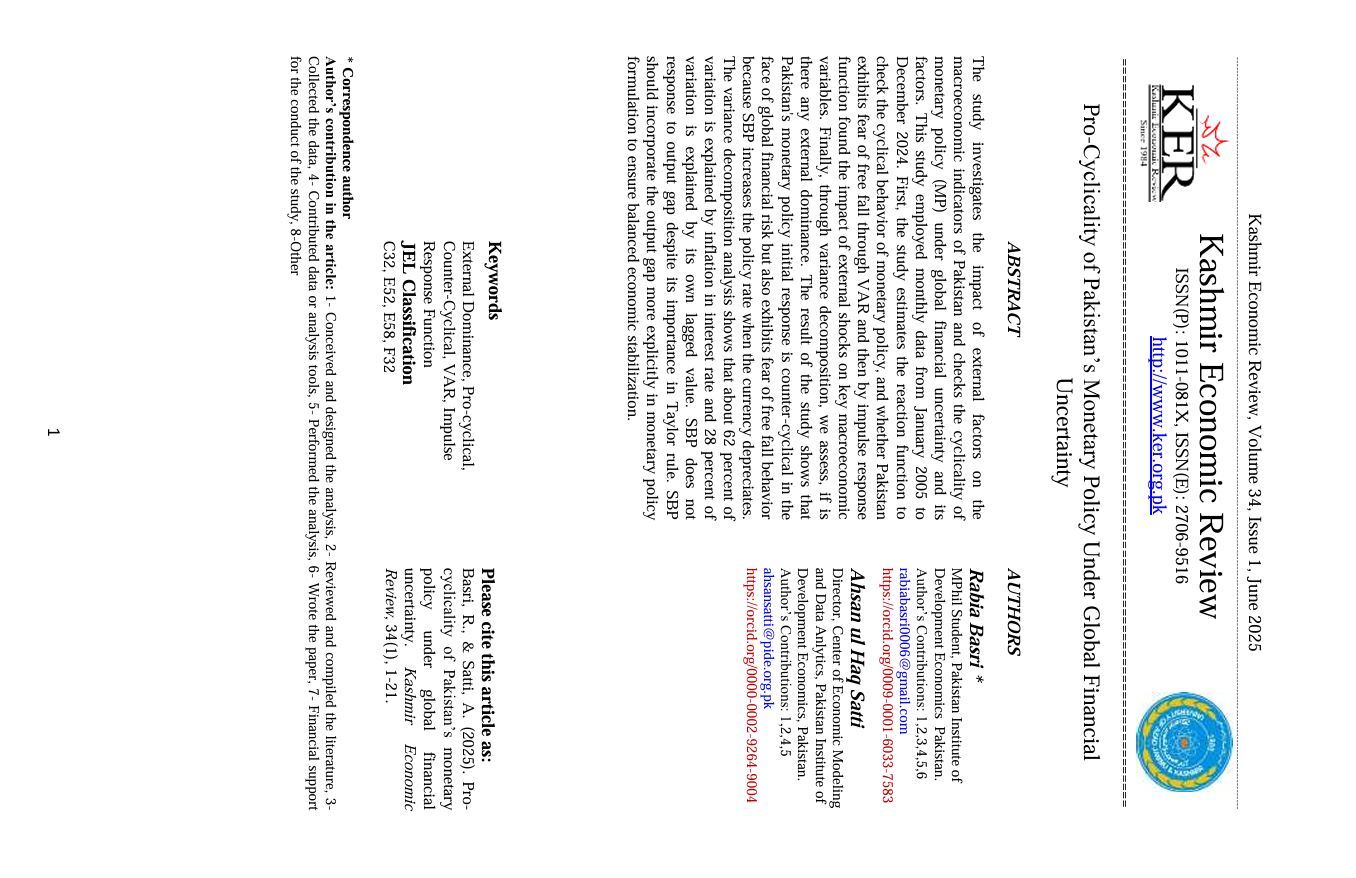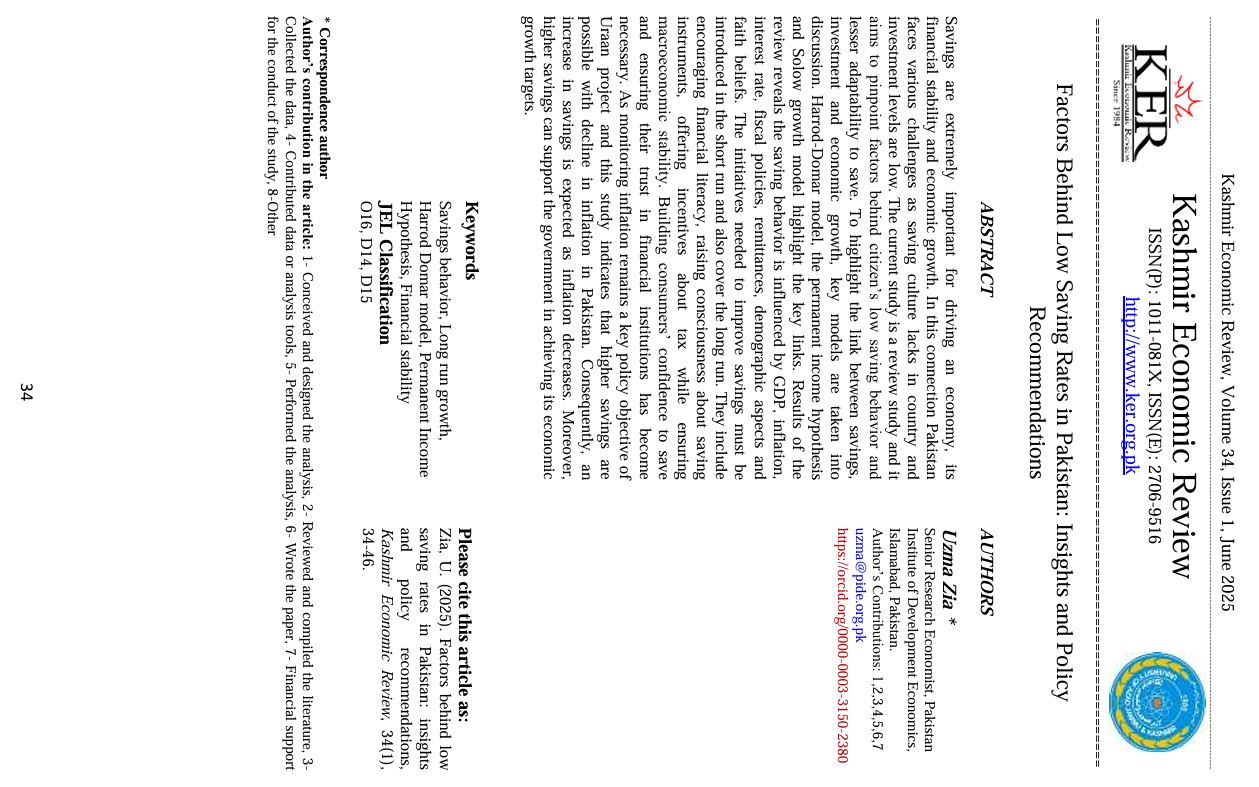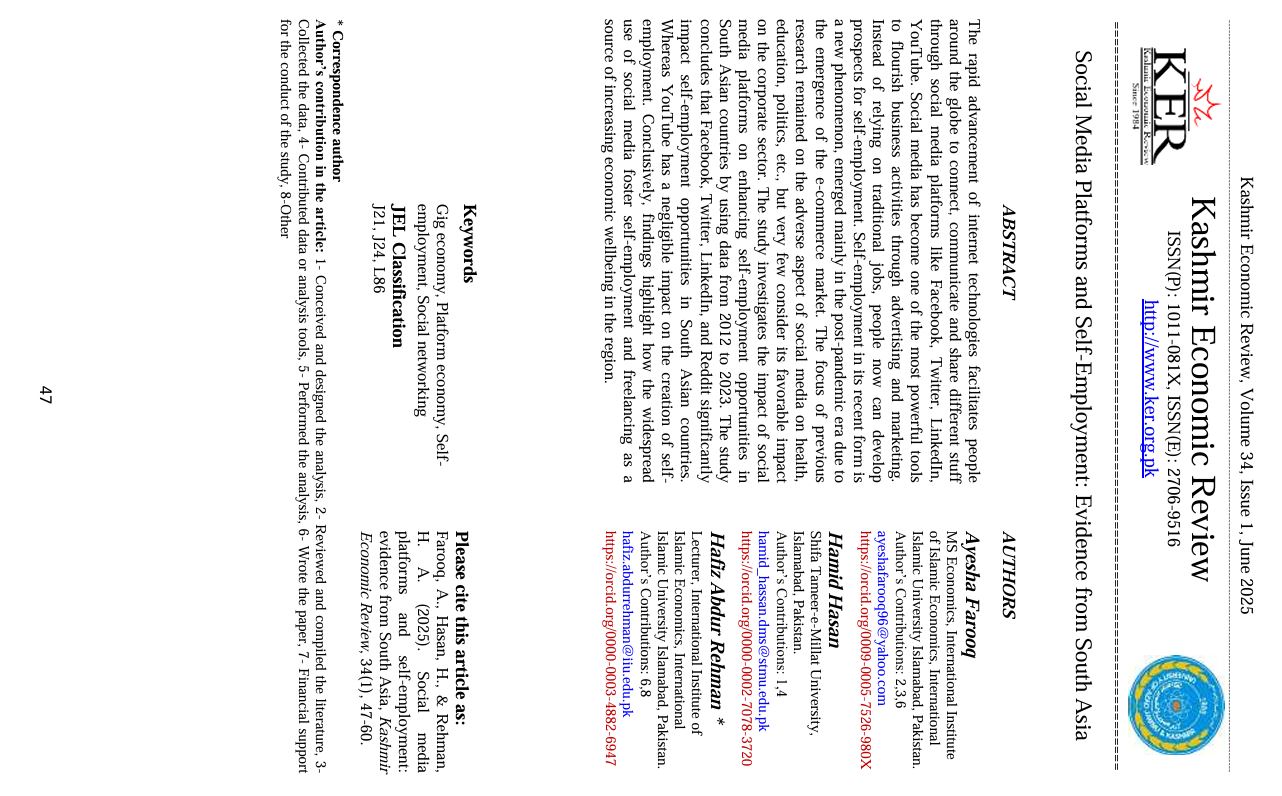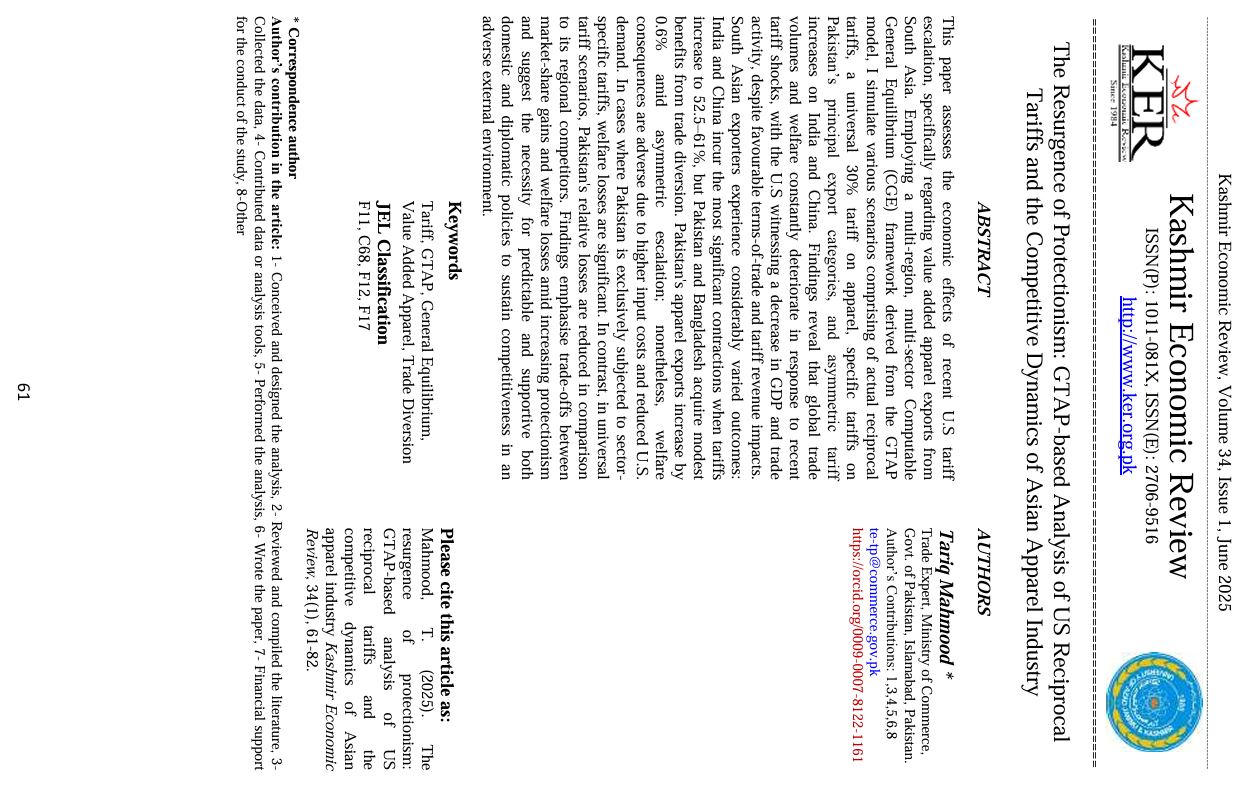Kashmir Economic Review
The Kashmir Economic Review is an old and historic academic journal published first in 1984 by Department of Economics, University of Azad Jammu and Kashmir (renamed as Kashmir Institute of Economics). Since very beginning, the journal enjoyed the patronage of top economists including George Abbott, Umar Chhapra, Andre Frank, Paul Streeten, AR Kemal, Zia ud Din Ahmed and Hans Singer. The journal has attracted readership and contributions from some of the best universities of United Kingdom, Japan, United Sates, Saudi Arabia, Malaysia and Australia.
KER is a biannual journal published twice in June and December of every year. The journal aims at providing a platform to share academic knowledge in all the major fields of economics including Welfare Economics and Human Development, Unemployment, Inflation, Internationalization and economic integration, Fiscal and Monetary Policies, Financial Economics, Labor Economics, Demographic Studies, Behavior Economics, Environmental Economics and Resource Management, Econometrics, Class Conflict, Public Finance, Game theory, Econometrics, History of economic thoughts, Economics and Law, Economic Underdevelopment, Bio economics, etc.
Objectives of KER
Kashmir Economic Review aims to serve as a forum for the promotion of knowledge, ideas and analytical content on economics. It also aims to help authors in extending their new insights and theories in the discipline. Another objective of KER is to shoulder the struggle of new researchers in elevating themselves for gradual higher quality publishing. KER offers enough space to works on economic behaviors of multidimensional humans and the economy. With this objective in view, KER has published articles on the integration of economics with ethics, religion, spirituality and human values which all have been empirically proven as relevant for any economy in the real world.
Hari gini masih bingung cari situs togel online terpercaya yang punya pasaran toto macau paling lengkap? Jawabannya udah pasti di
STM88 dong, bandar togel resmi yang menyediakan 100+ pasaran togel terbaik di kelasnya dengan minimal bet 100 perak aja.
Raja slot gacor gak bakal lengkap tanpa main di STM88.
Jadilah bagian dari komunitas jutawan baru lewat putaran hoki di situs slot gacor.
situs
Bersama STM88, kamu bisa main di slot gacor hari ini, kapan saja dan bawa pulang maxwin besar!
situs
Bersama STM88, kamu bisa main di slot gacor hari ini, kapan saja dan bawa pulang maxwin besar!






